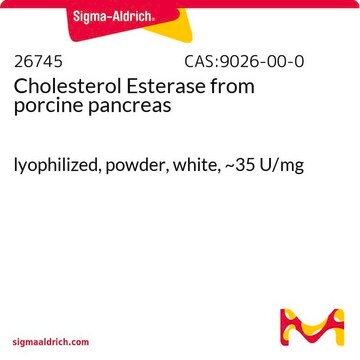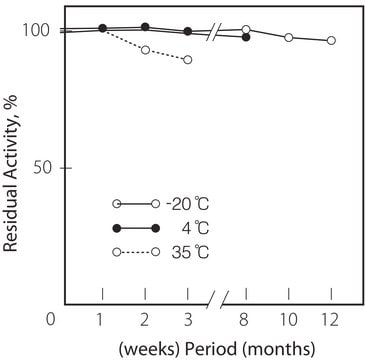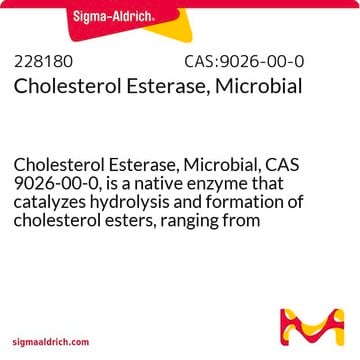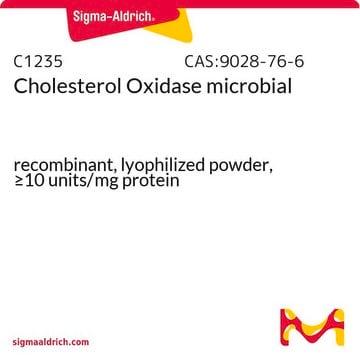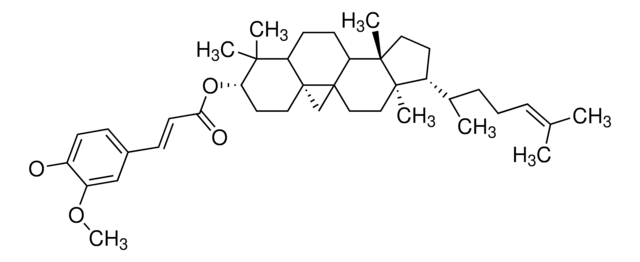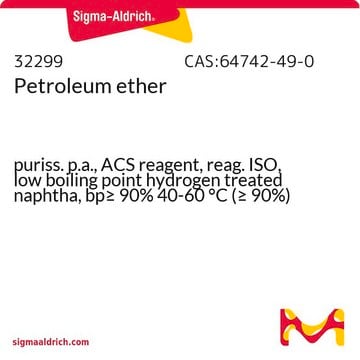C3766
Cholesterol Esterase from bovine pancreas
lyophilized powder, ≥200 units/g protein
Synonym(s):
Sterol-ester acylhydrolase
About This Item
Recommended Products
form
lyophilized powder
specific activity
≥200 units/g protein
mol wt
84 kDa by SDS-PAGE
composition
protein, ≥20%
storage temp.
−20°C
Looking for similar products? Visit Product Comparison Guide
General description
Application
- in γ-oryzanol-hydrolyzing activity
- in cholesterol esterase enzyme activity for quantification of cholesterol and cholesterol esters associated in tear film and lenses samples
- to test in vitro degradation of poly(fumaroyl bioxirane) maleate (PFM) polymer designed for bone tissue engineering
Optimum pH range: 6-8
Activators: Bisphenol A diglycidyl ether, cAMP-dependent protein kinase type II, ethanol, methanol, n-butanol, phosphatidylcholine, phosphatidylethanolamine, sodium taurocholic acid
Inhibitors: Bisphenol A methacrylate, diisopropylfluorophosphate, enolase, Hg2+, sodium fluoride, phosphatidic acid, phosphatidylcholine, phosphatidylserine
Biochem/physiol Actions
Other Notes
Unit Definition
Physical form
Preparation Note
Analysis Note
Signal Word
Danger
Hazard Statements
Precautionary Statements
Hazard Classifications
Resp. Sens. 1
Storage Class Code
11 - Combustible Solids
WGK
WGK 1
Flash Point(F)
Not applicable
Flash Point(C)
Not applicable
Personal Protective Equipment
Certificates of Analysis (COA)
Search for Certificates of Analysis (COA) by entering the products Lot/Batch Number. Lot and Batch Numbers can be found on a product’s label following the words ‘Lot’ or ‘Batch’.
Already Own This Product?
Find documentation for the products that you have recently purchased in the Document Library.
Customers Also Viewed
Articles
Cholesterol esterification enhances transport efficiency in lipoproteins for increased blood stream transport.
Cholesterol esterification enhances transport efficiency in lipoproteins for increased blood stream transport.
Cholesterol esterification enhances transport efficiency in lipoproteins for increased blood stream transport.
Cholesterol esterification enhances transport efficiency in lipoproteins for increased blood stream transport.
Our team of scientists has experience in all areas of research including Life Science, Material Science, Chemical Synthesis, Chromatography, Analytical and many others.
Contact Technical Service